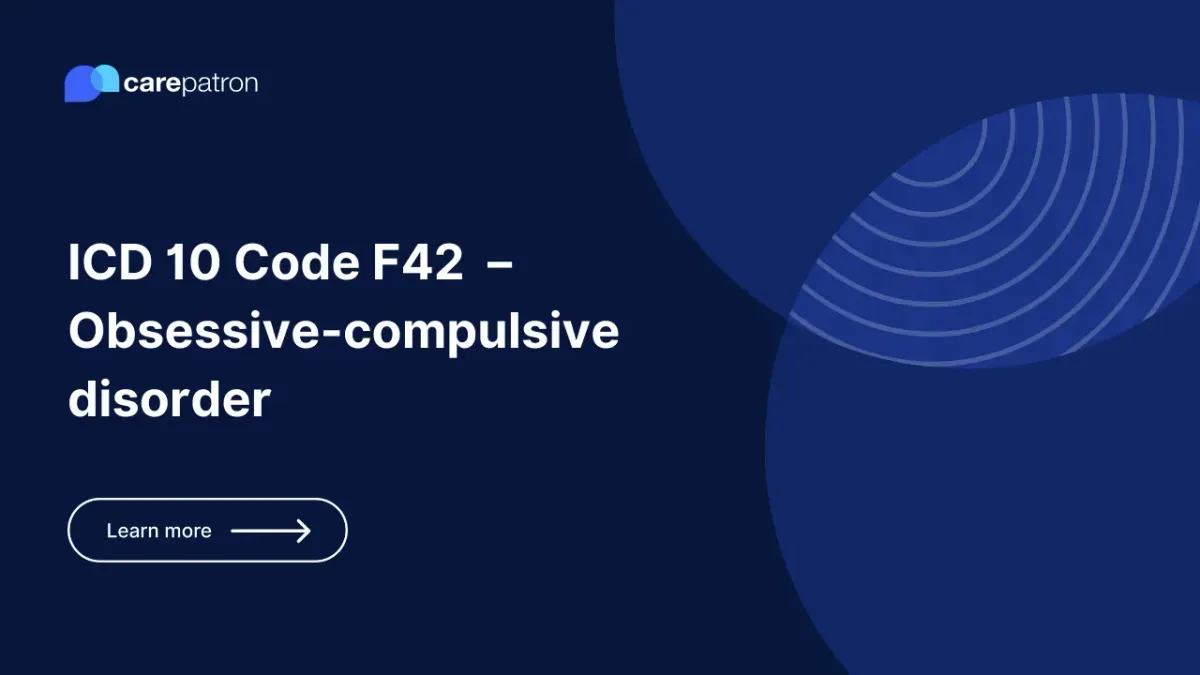
F42 – Obsessive-compulsive disorder
Learn about F42 – Obsessive-compulsive disorder, its clinical details, related codes, and more with this short guide.
Use Code
Commonly asked questions
F42.2 refers to mixed obsessional thoughts and acts. This means the person experiences both persistent thoughts (like fears or doubts) and compulsive behaviors (like repeated checking or cleaning).
Yes, it’s a specific form of OCD. It means the person has both obsessive thoughts and compulsive actions that interfere with daily life.
Predominantly obsessional thoughts or ruminations are distressing ideas, mental images, or impulses that often lead to indecision and difficulty making everyday choices.
EHR and practice management software
Get started for free
*No credit card required
Free
$0/usd
Unlimited clients
Telehealth
1GB of storage
Client portal text
Automated billing and online payments
